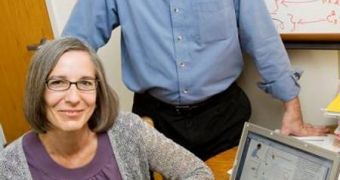Two experts at the University of Illinois, Allen H. Renear and Carole L. Palmer, both professors of library and information science, announce that the long-awaited innovation in reading techniques, which has been promised since the 1980s, is finally about to take place. It mostly addresses people skimming through scientific publications looking for relevant information, and who read “strategically.”
The team believe that their new method will soon lead to an increasingly efficient strategic reading experience. Scientists, for instance, browse through articles looking for diagrams, paragraphs of interest and keywords, and rely heavily on a book's index in their assessment. Peer opinion also seems to have a major saying in the way experts interpret or relate to a certain publication.
The innovation that the UI experts promise is related to ontologies, which are, essentially, methods of rearranging the scientific content in a text, in a manner that relates concepts to terms directly and unmistakably. The authors themselves describe ontologies as “structured terminologies for representing scientific data.” Renear says that using these tools would be like “speaking a language that can also be understood by computers, so computers can assist them as they make their way through text.”
“The way most journal articles are currently re-produced in electronic form is still as more or less non-functional versions of printed pages – basically, just a piece of paper lying dead on the screen,” the expert explains. The team plan to devise a system that would be much more than the average printed paper, at least in the electronic format of various works published online. They envision a document in which text, diagrams and data can be connected to databases of contemporary scientific knowledge.
“Scientists want to read more, faster. They want to read, relate and annotate research articles, strategically. Search and retrieval functions are important, as are automated information extraction and text mining. But tools for reading help scientists with the vital, everyday work of understanding and using the literature,” Palmer concludes.

 14 DAY TRIAL //
14 DAY TRIAL //